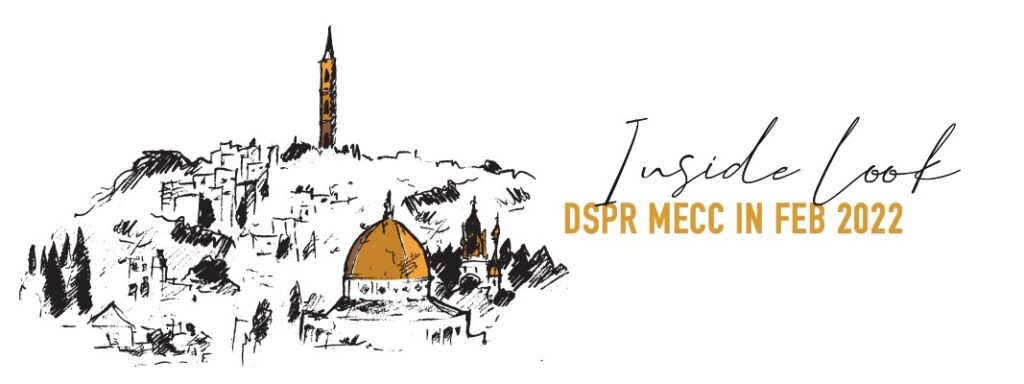DSPR comments on the Amnesty report
When you hear the word apartheid, what do you think of it? Most likely, the separation and the racist distinction between white and black in South Africa, where a system of a white racist minority declared themselves better than the black majority. Africa’s apartheid system officially ended in the middle of the 1990s, but that doesn’t mean apartheid can happen elsewhere. Last week, at a press conference in Jerusalem, the human rights organization Amnesty International presented its new report on Israel as an apartheid state. Amnesty International, the world’s largest human rights organization, spent four years working on its 280-page report. Israel has accused it of defiling Jewish historical memory and of anti-Semitism.

In doing so, the Israeli side loses sight of the fact that the members of Amnesty are not acting out of hatred for Israel but have also published this report for Israels sake. So that neither they nor their children must continue living as masters of an apartheid regime and that they want a better, more equal future for both Palestinians and Israeli Jews. In any case, this report reflects an incredibly bleak picture. Instead of hitting the mirror, we hope that Israel will finally summon the courage to look reality in the face – and try to change it. For the sake of all our children.
The report makes clear the demand that the Israeli authorities should be held accountable for the crime of apartheid against the Palestinians. The enquiry details how Israel enforces a system of oppression and domination against the Palestinian people wherever it has control over their rights. This includes Palestinians living in Israel and the Occupied Palestinian Territories (OPT), as well as displaced refugees in other countries. The comprehensive report, Israel’s Apartheid against Palestinians: Cruel System of Domination and Crime against Humanity, sets out how massive confiscations of Palestinian land and property, unlawful killings, forced displacements, drastic restrictions on movement, and denial of nationality and citizenship to Palestinians are all components of a system that amounts to apartheid under international law. This system is perpetuated by violations that Amnesty International considers to constitute apartheid as a crime against humanity as defined in the Rome Statute and the Apartheid Convention.
Amnesty International provides numerous specific recommendations for how the Israeli authorities can dismantle the apartheid system and the discrimination, segregation and oppression which sustain it.
The organization is calling for an end to the brutal practice of home demolitions and forced evictions as a first step. Israel must grant equal rights to all Palestinians in Israel and the OPT, in line with principles of international human rights and humanitarian law. It must recognize the right of Palestinian refugees and their descendants to return to homes where they or their families once lived, and provide victims of human rights violations and crimes against humanity with full reparations.
RECOMMENDATIONS
- End the system of apartheid by dismantling measures of discrimination, segregation and oppression currently in place against the Palestinian population and undertake a review of all laws, regulations, policies and practices that discriminate on racial, ethnic or religious grounds, and repeal or amend them to bring them into line with international human rights law and standards, in particular Israels obligations to ensure the principle of non-discrimination under international law.
- Grant equal and full human rights to all Palestinians in Israel and the OPT in line with principles of international human rights law and without discrimination, while ensuring respect for protections guaranteed for Palestinians in the OPT under international humanitarian law.
- Immediately order members of all state authorities to end and refrain from all future conduct that violates international law, including forcible transfer of population, arbitrary arrest, administrative detention, torture and other ill-treatment, unlawful killings and infliction of injuries, as well as restrictions on other fundamental rights, such as arbitrarily restricting Palestinians freedom of movement and residence in their communities, their right to family life, and their rights to access livelihoods, housing, food, water, essential healthcare services and education.
- Suspend from active duty any military or official personnel suspected of ordering or committing grave violations of international law pending the completion of investigations.
- Develop clear guidelines requiring law enforcement officials to report abuses, and ensure that officers at all levels of the chain of command know about these guidelines and are held responsible for enforcing them, with penalties imposed, following fair proceedings, for failing to report, or covering up, violations or misconduct by security forces.
- Order prompt, impartial, independent and effective investigations into all allegations of crimes against humanity and other serious human rights violations by state officials and actors. Where there is sufficient admissible evidence, bring those reasonably suspected of individual criminal responsibility, including command responsibility, to trial in proceedings that meet international standards of fairness.
- Provide victims of human rights violations, crimes against humanity and serious violations of international humanitarian law and their families with full reparations. These should include restitution of and compensation for all properties acquired on a racial basis, including restitution of and compensation for properties confiscated by the Custodian of Absentee Property.
At the Department to Service to Palestinian Refugees, we see this report as the first step towards a possible better future. We hope that it will set the course for dialogue, for concrete steps against discrimination against Palestinians and steps towards a time in the Middle East where all inhabitants – regardless of origin, religion and culture – have the same rights and opportunities. A life in dignity and following human rights.

